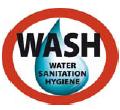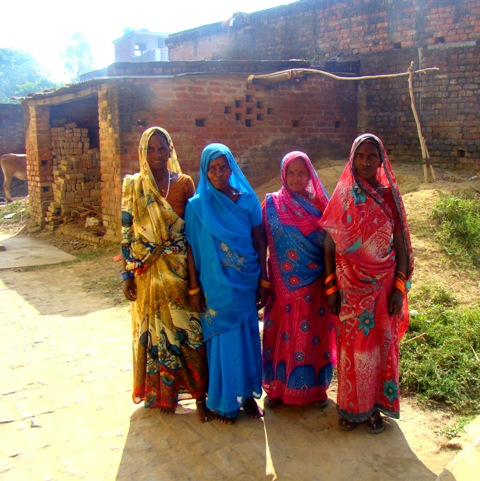Rural Water
Drought mitigation measures through climate adaptation for securing agricultural livelihoods in Uttar Pradesh
Posted on 13 Jan, 2013 02:43 PMProlonged and recurrent drought, being experienced in India and various parts of south Asia, is the manifestation of climate change, partly caused by human interventions. Drought has been one of the primary reasons for widespread poverty and environmental degradation including deteriorating water quality and water security. The world has been more drought-prone during the past 25 years and the vulnerability of tropical countries to drought is likely to increase (Inter-governmental Panel on Climate Change, 2007).
Process of formation of Jajmau Area Water Partnership in Kanpur, Uttar Pradesh – Problems and solutions
Posted on 13 Jan, 2013 12:01 PMIndustrial effluents and sewage water are being diverted to the river Ganga by the cities and towns through which it passes. Nestled on the banks of Ganga, Kanpur, a highly urbanized and industrial city is polluting it most. Apart from the Government of India’s recently constituted National Ganga River Basin Authority, civil societies and NGOs too are putting rigorous efforts to make Ganga pollution free. Though the city has several big and small industries, the leather industries located in Jajmau, the oldest part of the city add to the problem of pollution in the river to a large extent.
Gram Vaani invites applications for senior management positions in New Delhi; Directors - Business development, Programmes and Operations - Apply by January 31, 2013
Posted on 11 Jan, 2013 11:24 PM
Place of work
New Delhi (All positions are based out of New Delhi but will require travel to various parts of the country, including rural areas.)
About Gram Vaani
Gram Vaani meaning 'voice of the village', builds innovative technologies and sustainability processes to reverse the flow of information and make it bottom-up instead of top-down. We want to empower poor and marginalized communities to voice their opinions and demands. Starting in 2009, we built a pioneering radio automation system that now runs at 30+ community radio stations in India and 5 in Africa, enabling an aggregate population of 2 million people to create their own local media.
Gram Vaani is raising $0.5M in equity investment to build the equivalent of a Facebook for rural India! We want to rapidly expand our team and are looking for high energy individuals to join us and bring professional expertise to the company.
Traditional diversion-based phad irrigation systems help mitigate risk of crop failure in the drought-prone farmer suicide belt of Vidarbha, Maharashtra
Posted on 11 Jan, 2013 11:56 AMMany of these systems (1) continue to function and are often more sustainable, cost-effective and successfully managed by local institutions. Phads are one such community-based and managed diversion irrigation management system (2) prevailing in the north-western part of Maharashtra and date back to the early 16th century as per historical accounts. The system is prevalent in the Tapi basin on rivers the Panjhra, Mosam and Aram in Dhule and Nashik districts (3).
Phads or diversion-based irrigation systems, are being revived and promoted in Vidarbha region of Maharashtra by Dilasa, a Yavatmal-based voluntary development organisation (Video courtesy: Dilasa)
Report on Greening of the NRDWP: News and Policy Update from India WASH Forum e-Newsletter-Dec 2012
Posted on 11 Jan, 2013 07:44 AM Gender in WASH: Misplaced perspective in WASH sector
Gender in WASH: Misplaced perspective in WASH sector
National water policy views water as an economic good: Resistance shown by civil society with the move towards increasing the water and sewerage tariff- Bimonthly newsletter by India WASH Forum
Posted on 04 Jan, 2013 10:24 PM
This edition of the India WASH Forum has the following highlights:
Guidelines for preparation of detailed project report for rural piped water supply schemes- A document by Ministry of Drinking Water and Sanitation (2012)
Posted on 12 Dec, 2012 10:19 PMThis document by Ministry of Drinking Water and Sanitation provides essential components that should form part of detailed project report in village/multi village’s rural piped water supply scheme.
The main components of the guidelines include
The Mahatma Gandhi National Rural Employment Guarantee (Amendment) Bill by Ministry of Rural Development (2012)
Posted on 11 Dec, 2012 07:41 PMThis document is a bill by Ministry of Rural Development aims to amend the Mahatma Gandhi National Rural Employment Guarantee Act, 2005. The objective of this bill is to arrest the rampant corruption in the scheme, which was meant to provide employment opportunities to landless labourers and small farming families in rural areas.
CORD invites applications for the Chinmaya Gramin Sevak Prashikshan, a course on integrated rural development at Sidhbari, Himachal Pradesh
Posted on 12 Nov, 2012 10:39 AMAbout the course
Chinmaya Organisation of Rural Development (CORD) would like to upscale its comprehensive integrated rural development work in remote rural areas of the country based on its 27 years of enriched and established work and learning in 550 villages of Himachal Pradesh and another 160 villages in its newer sites at Odisha and Tamilnadu. CORD envisages selecting certain Panchyats for holistic development in the remote areas of the country from different districts and states. It plans to work intensively in the Panchyat selected for five to six years before expanding further.
To ensure people driven grass root transformation, CORD is looking out for inspired people from remote and backward districts of the country with leadership quality, willing to live and work in one of the Panchyats of his/her area and serve with their hands and heart. It could even be the village and Panchyat where he/she lives if it happens to fit in to CORD’s criteria of the Panchyat to be selected in the backward district.
It will be free, full time, one year residential course in Hindi with commitment to serve and work for CORD as full time paid employee in the remote rural district to which the candidate belongs on successful completion of the course.
The Nirmal Bharat Yatra at Uttar Pradesh -Training of teachers at Gorakhpur Block Resource Centre
Posted on 05 Nov, 2012 08:11 PM






